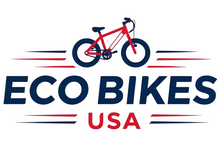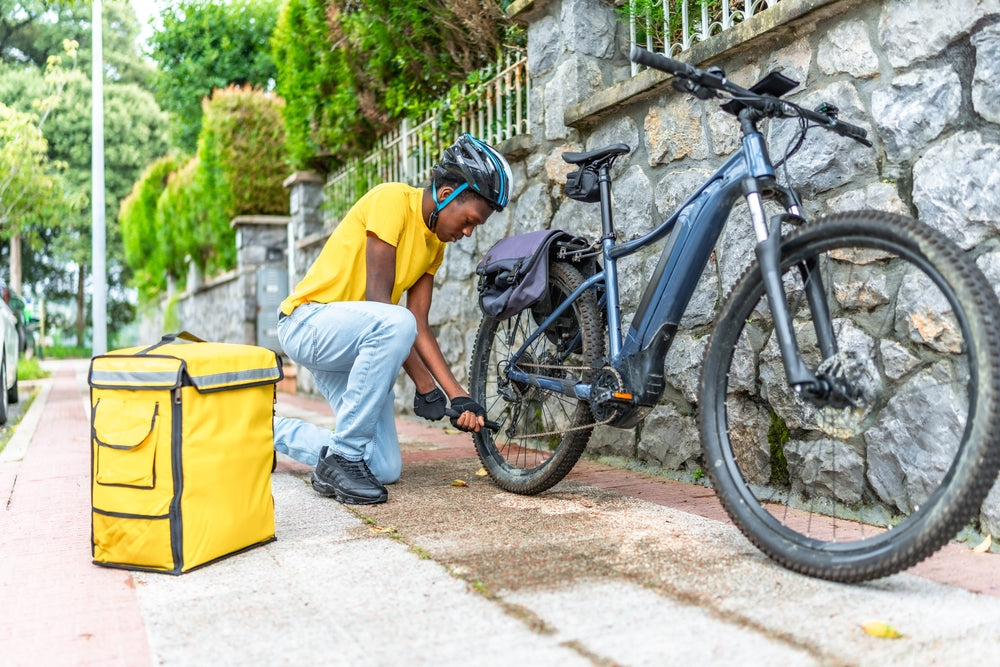Your brakes matter. A lot.
When you're riding an e-bike at 20+ mph, you need brakes that work. Every time. The question is: hydraulic or mechanical?
Both will stop your bike. But they work differently. And that difference affects your safety, your wallet, and how much time you spend fixing things.
How They Work
Mechanical brakes are simple. You pull the lever. A cable tightens. The brake pads squeeze the rotor. Your bike stops.
Hydraulic brakes use fluid instead of cables. Pull the lever. Fluid pushes through sealed hoses. Pistons press the pads against the rotor. Done.
The cable vs. fluid difference changes everything.
Safety: Stopping Power When You Need It
Hydraulic brakes stop you faster with less effort.
You can use one finger on the brake lever. The fluid amplifies your force. A light squeeze gives you strong braking.
This matters on heavy e-bikes. It matters more when you're carrying cargo or passengers. And it really matters in emergencies.
Mechanical brakes need more hand strength. You have to squeeze harder. After a long ride with lots of stops, your hands get tired.
But here's the thing: properly maintained mechanical brakes still work fine for most riders. The problem is that "properly maintained" part.
Maintenance: Time and Money
Mechanical brakes need more attention.
Cables stretch. You'll adjust them every few weeks if you ride daily. Maybe every few months if you ride occasionally. The adjustment is easy—usually just a 5mm hex wrench. But you have to do it.
Skip the adjustments and your braking power drops. That's dangerous.
Hydraulic brakes adjust themselves as the pads wear. You might replace pads once or twice a year. That's it for most riders.
The catch? When hydraulic brakes do need service, it's more complex. Bleeding the lines requires special tools and knowledge. Most people take them to a shop.
Cost Breakdown
Mechanical brakes cost less upfront. They're standard on budget e-bikes under $1,500.
Hydraulic brakes cost 30-50% more. But prices are dropping. Some e-bikes now offer hydraulic brakes at $999.
Long-term costs flip the script. Mechanical brakes need frequent cable replacements. Hydraulic brakes need less service overall.
Weather and Terrain
Hydraulic brakes work better in rain, mud, and snow. The sealed system keeps out dirt and water.
Mechanical brake cables can get contaminated. Moisture gets in. Performance drops.
On steep hills, hydraulic brakes give you better control. You can modulate the braking force more precisely. That means you can brake hard without skidding.
Flat city riding? Mechanical brakes handle it fine.
Comparison Table
| Feature | Hydraulic | Mechanical |
|---|---|---|
| Stopping power | Strong with light touch | Requires more hand force |
| Maintenance frequency | Low (6-12 months) | High (2-4 weeks) |
| Maintenance difficulty | Complex, needs special tools | Simple, basic tools |
| Cost | Higher upfront | Lower upfront |
| Weather performance | Excellent in all conditions | Can degrade in wet/dirty conditions |
| Modulation | Precise control | Less precise, more on/off feel |
| Self-adjusting | Yes | No |
| DIY repairs | Difficult | Easy |
| Weight | Slightly heavier | Lighter |
Which Should You Choose?
Get hydraulic brakes if:
- You ride hills regularly
- You carry cargo or passengers
- You ride in all weather
- You want less maintenance
- You can afford the upgrade
Get mechanical brakes if:
- You ride flat terrain
- You're on a tight budget
- You like doing your own maintenance
- You ride casually
- You have basic bike repair skills
The Real Safety Issue
Here's what matters most: maintained brakes.
The best hydraulic brakes in the world won't save you if the pads are worn out. And properly adjusted mechanical brakes work great.
New riders often don't maintain mechanical brakes enough. Cables stretch. Braking power drops. That's dangerous.
Hydraulic brakes are more forgiving. They keep working consistently. For riders who don't want to think about brake maintenance, that's a big safety advantage.
What the Experts Say
Hydraulic disc brakes generally outshine mechanical ones in performance and control. Mechanical brakes are still capable, dependable, and more than sufficient for many riders.
Hydraulic brakes provide fantastic stopping power but are a bit more difficult to adjust and service.
Making Your Decision
Think about how you ride.
Daily commuter on hilly streets? Hydraulic brakes will make your life easier and safer.
Weekend rider on bike paths? Mechanical brakes will do the job. Just keep them adjusted.
Cargo bike hauling kids? Get hydraulic brakes. The extra stopping power matters.
Budget e-bike for short trips? Mechanical brakes are fine.
The Bottom Line
Both brake types work. Both can be safe.
Hydraulic brakes give you better performance, less maintenance, and more consistent stopping power. They cost more upfront but save time long-term.
Mechanical brakes cost less and are easier to fix yourself. But they need regular attention to stay safe.
Your riding style, terrain, and budget should guide your choice. Not marketing hype.
Just remember: the best brake system is the one you actually maintain.





